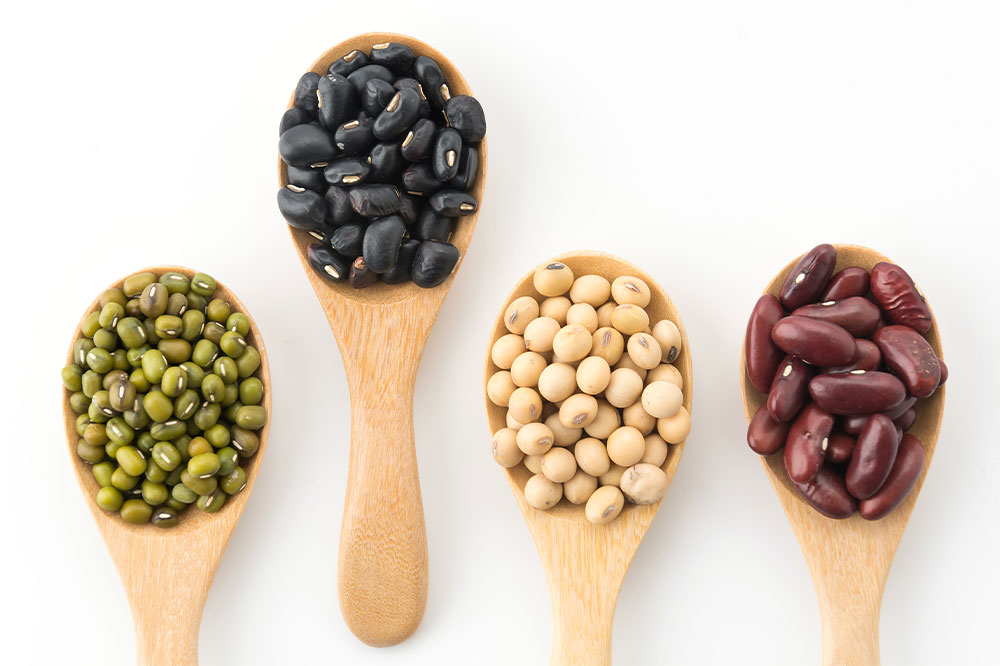Foods to avoid with inflammatory bowel diseases

Inflammatory bowel disease (IBD) is the term used to refer to chronic inflammation of tissues in the digestive tract. IBD is generally categorized into two types – ulcerative colitis and Crohn’s Disease. These disorders are characterized by diarrhea, rectal bleeding, abdominal pain, fatigue, weight loss, and malnutrition. The effects of the disease differ from individual to individual. While symptoms of IBD may be mild for some, they may lead to life-threatening complications for others.
However, there’s no single chart that applies to every person with IBD, as the condition can change over time. To understand current triggers, try to maintain a food diary, which may help patients track the condition over time. Common culprits that may trigger IBD flares include:
Peas
Peas, beans, and lentils contain indigestible sugars that may cause gas, so avoiding these during a flare may help.
Carbonated drinks
Carbonation is gassy and can cause bloating, which can be an unpleasant symptom of IBD.
Dried fruits
Dried fruits, berries, and fruits with pulp and seeds are often high in fiber and can worsen symptoms during a flare.
Crunchy nut butter
Nuts are sharp and difficult to digest, irritating the lining of the intestines, opt for smooth nut butter instead.
Refined sugar
Refined sugar pulls more water into the gut. This can worsen diarrhea during a flare.
Caffeine
Caffeinated drinks like coffee can worsen Crohn’s and UC symptoms, like diarrhea and stomach pain, by speeding up gut motility.
Red meat
Meats, particularly fatty meats, contain excess fat that may not properly be absorbed during a flare. This can often worsen the symptoms of IBD.
Popcorn
The thick skin on corn and popcorn can be tough to digest and may even cause cramping for people with IBD.
Chocolate
Chocolate contains caffeine and sugar, further irritating the digestive tract during a flare.
Peppers
Spicy foods like hot sauces and peppers can trigger or worsen symptoms of IBD during flares and must be avoided.
Milk
People with lactose intolerance must avoid dairy products, as these can trigger symptoms of IBD, such as diarrhea.
Sugar-free candies
Sugar-free candies are generally sweetened with artificial sweeteners such as sorbitol, mannitol, xylitol, etc. These can increase gut damage and cause inflammation in people with IBD, such as Crohn’s and UC.
Broccoli
Vegetables, especially raw vegetables, are high in fiber and can be challenging to digest, leading to bloating, gas, and abdominal pain. Therefore, it is best to avoid stringy vegetables like broccoli, celery, cabbage, onions, and Brussels sprouts during a flare.
Gluten
Gluten is found in wheat, barley, rye, and some oats and can trigger IBD symptoms in people with gluten sensitivity.
Bottom line
To effectively manage flares, foods rich in Omega-3 fatty acids can help. These include salmon, mackerel, herring, sardines, flaxseed oil, and walnuts. Eggs are fortified with Omega-3 and are a great source of protein as well. Probiotics like yogurt, kombucha, sauerkraut, and miso can help aid digestion and maintain gut health. Avocados, although high in nutrients are made up of 70% water, making them easier to digest. During or right after a flare, foods like unsweetened applesauce and plain, refined oatmeal can help soothe the gut. Furthermore, squash, carrot juice, and plantains can help too.

